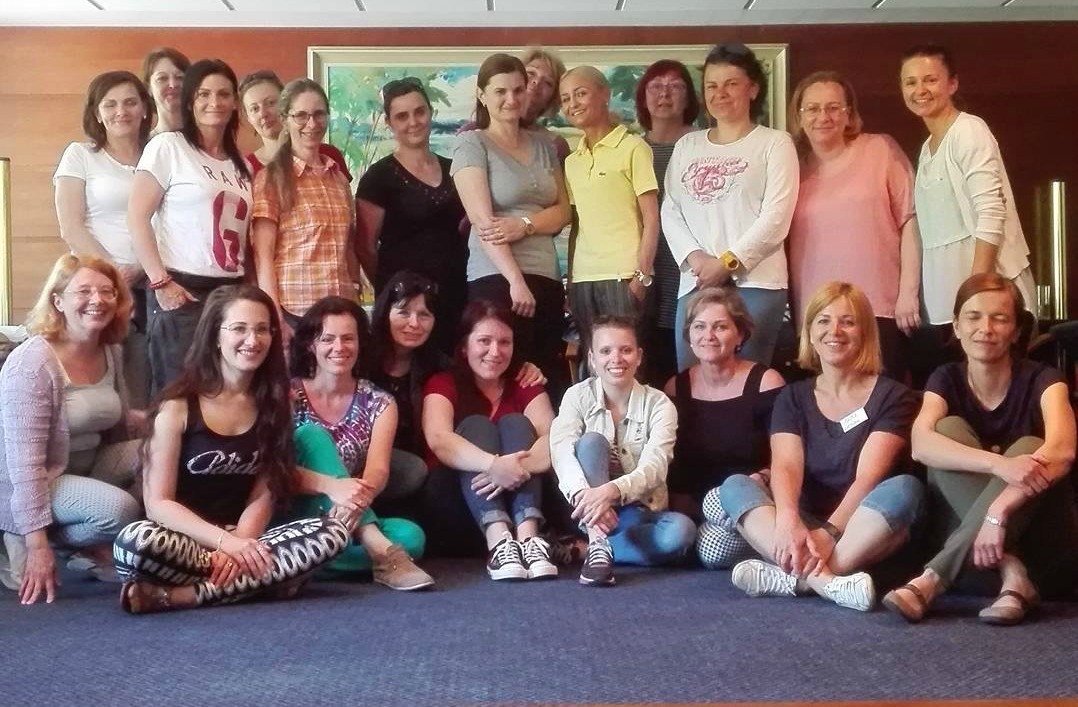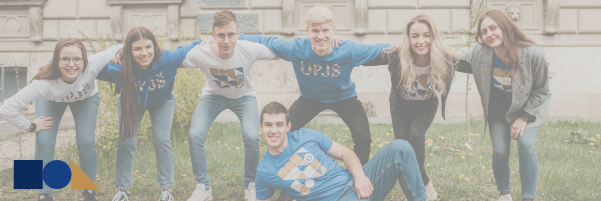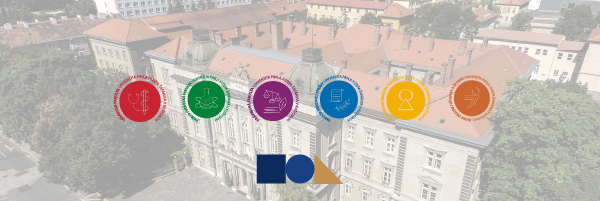
What is UNPLUGGED?
The “Unplugged” program is a school program for prevention of substance use. The program was designed for adolescents aged 12-14, which meets the need for timely prevention. It is a European program the design of which corresponds to the conditions of European schools. The program was also implemented in countries like Italy, Belgium, Spain, Austria, Sweden, Greece and Germany. It is an interactive program, which provides for the whole group (or a class) to actively participate in lessons, whether during the discussion or during other activities like role-playing. It´s main goal is to prevent the use of alcohol, tobacco, marihuana and other legal and illegal drugs like pharmaceuticals, methamphetamine, cocaine etc.
What principles does the “Unplugged” program follow?
The main principle of the program is the CSI model (Comprehensive social influence model). It accounts for the overall influence of family, school and peers in prevention. The social influence can be both positive and negative. The aim of the model is to guide the adolescents to acquisition of skills and tools which will help them resist social influence concerning not only substance use, but also other areas. The second principle of the program is the KAB model (Knowledge-Attitude-Behavior), the aim of which is to provide the students with objective information concerning substance use and its consequences. The procedure consists of three basic steps:
- Providing the information
- Influencing the quality of attitude
- The change of behavior
What is the goal of the program?
The aim of combining these two principles is to influence the risk behavior in relation with substance use. The program is intended to reduce the number of adolescents that are beginning to use substances to postpone their first experience with drugs as well as the transition from experimenting to regular use of drugs. It is based on the combination of prevention methods which are focused on the development of personal and social skills and the perception of social norms.
It involves the development of interpersonal and intrapersonal skills and correction of false normative beliefs and attitudes. It places emphasis on setting the normative beliefs about drug use and ingestion.
What are the students supposed to learn?
- The information on substances and the consequences of their use
- To solve problems
- To make decisions
- To control their emotions
- To communicate efficiently
- To create positive relationships around them
- To resist peer pressure
- To face responsibility
The students are becoming more resistant to substance use by acquiring these skills.
How is the program implemented?
The program is structured into 12 lessons arranged at approximately three-week intervals. The program is implemented during the school-time. Each lesson is 45 minutes long and is theme-focused. These are usually carried out by the school’s teachers like school prevention methodologists, educational advisers or school psychologists. The program is divided into three categories- information and attitudes, interpersonal skills, intrapersonal skills. The design of the program allows for a smooth transition from one lesson to another, ensures diversity and development of group dynamics and social interaction. The students acquire social, emotional and personal skills, develop critical thinking skills, decision-making and problem-solving skills and efficient communication as well as human-relation skills. It also aims to influence the normative beliefs of students and their ability to control their emotions. The material part of the program consists of providing the methodic books for teachers, where they can find detailed description of each individual lesson and activity, exercise books for students and cards.
Training of lecturers for Unplugged
Before the implementation of the program, lecturers go through an interactive training, during which they are able to try to prepare and execute individual lessons. They are provided with basic information about the program, its structure, basic principles, methodology necessary for work with social skills, and the model of complex influence of social environment. The teachers are the ones to be taught during this training.

Unplugged lecturer training 2017- Tatranská Štrba, Hotel Meander
The research findings on the effectiveness of the UNPLUGGED 1 program (2012-2015)
In Slovakia, the program was first implemented by the Philosophical faculty of P.J. Šafárik University in school year 2012/2013. The total of 69 elementary schools were involved in the project (32 of which were experimental and 37 belonged to the control group). 1534 pupils took part in research and nearly 600 pupils were involved in the program.
The research was focused on the effectiveness of Unplugged-the universal program for prevention of substance use. The indirect effect of the Unplugged program was found 3 months after the implementation of this program in relation to lifelong prevalence of smoking among pupils. The mediators of this effect were found to be positive self-esteem and descriptive NB related to the prevalence of smoking among their friends.
You can find more detailed findings in our research monograph here.
The new UNPLUGGED 2 program (2017-2020)
The current research of the effectiveness of the Unplugged program is the follow-up of the previous project. In school year 2017/2018, more than 700 pupils of 7th grade from 24 chosen schools from all over Slovakia are involved in the project. Currently, the program is extended by a follow-up program “n-Prevention” of the Department of Addictology of the First Faculty of Medicine of Charles University and General Faculty Hospital in Prague. It is a series of so called “booster sessions”, the aim of which is to contribute to the effectiveness of the program. The design of N-prevention is similar to that of Unplugged. It consists of a series of 4 lectures. The first two lectures are dedicated to social norms and normative beliefs, refusal skills and differences between genders. The other two lectures are based on the current neurological knowledge that provides information on the influence of drug use on brain functioning. N-prevention is going to be implemented during the first semester of school year 2017/2018, after the Unplugged program is ended.
Our goal is to repeatedly research the effectiveness of the program and to find new information related to the comparison of the short-term and long-term effectiveness of the program (immediately after its end, a year after, two years after) and its direct and indirect influence. We also aim to get the parents involved in the project in order to monitor their levels of alcohol consumption, smoking of tobacco cigarettes and family processes, and to research the correlation between these factors and the effectiveness of the program, and the concord/discord of the information provided by the parents and their children.
Schools involved in the project published useful information on the program and parent flyers on their websites.
List of schools involved in the UNPLUGGED 2 program (Experimental schools, Control schools)
Experimental schools
- ZŠ Fándlyho, Pezinok
- ZŠ Kupeckého, Pezinok
- ZŠ Kniežaťa Pribinu, Nitra
- Spojená ZŠ s MŠ, Nitrianske Pravno
- ZŠ Nade Hejnej, Martin
- ZŠ Považská, Košice
- ZŠ Komenského, Poprad
- ZŠ Jenisejská, Košice
- ZŠ Haina, Levoča
- ZŠ Tribečská, Topoľčany
- ZŠ Medveckej, Tvrdošín
- ZŠ Abovská, Košice
Control schools
- ZŠ Fándlyho, Sereď
- ZŠ Sokolíkova, Bratislava
- ZŠ ČSL armády, Moldava n. Bodvou
- ZŠ Novomkého, Trenčín
- ZŠ Pod Hájom, Dubnica nad Váhom
- ZŠ Dargovských Hrdinov, Humenné
- ZŠ Mierová, Strážske
- ZŠ Park Angelinum, Košice
- ZŠ Pavla Křižku, Kremnica
- ZŠ Angyalova, Kremnica
- ZŠ Malonecpalská, Prievidza
- ZŠ Hollého, Topoľčany
We were mentioned:
14.4.2017
TASR- Školský servis
http://skolskyservis.teraz.sk/skolstvo/kosice-ff-upjs-pokracuje-v-realizova/33989-clanok.html
13.4.2017
The Faculty of Arts continues with the Unplugged program- the faculty of arts of P.J. Šafárik University is researching the effectiveness of the program for prevention of substance use among pupils; Korzár- denník Košického kraja (TASR)
https://kosice.korzar.sme.sk/c/20508841/filozoficka-fakulta-pokracuje-v-programe-unplugged.html
12.4.2017
Unplugged- a school program of universal prevention of substance use among Slovak pupils- the faculty of arts of P.J. Šafárik University continues the research of effectiveness of the universal program for prevention of substance use among Slovak pupils; Hlavné správy- Konzervatívny denník
References:
- EUDAP (http://www.eudap.net/)
- MIOVSKÝ, M. et al. 2012. The Effect of the School-Based Unplugged Preventive Intervention on Tobacco Use in the Czech Republic. In: Addiciones, vol. 24, no. 3, p. 211-217
- ŠIRUČKOVÁ, M. – MIOVSKÝ,M. a kol. 2012. Příklady dobré praxe programů školní prevence rizikového chování. Praha: Univerzita Karlova v Praze, 1. Lékařská fakulta, Klinika adiktologie 1. LF a VFN v Praze, 2012, ISBN 978-80-87258-91-0
The research is supported by the Research and development agency under contract no. APVV-0253-11 Drug use among adolescents and college students. Drug use prevention based on the research data (Principal Investigator: Prof. PhDr. Oľga Orosová CSc.), APVV-15-0662 Psychological mechanism of changes in risk behavior of pupils and college students. Risk behavior and emigration, migration intentions (Principal Investigator: Prof. PhDr. Oľga Orosová CSc.).
Follow-up projects KEGA 016UPJŠ-4/2017 Fidelity of Unplugged- program for universal prevention of substance use in the Slovak elementary school environment (Principal Investigator: Prof. PhDr. Oľga Orosová CSc.) and VEGA 1/0623/17 Analysis of personal-social characteristics and risk behavior indicators of adolescents in the context of family processes. (Principal Investigator: Mgr. M. Bačíková Phd.) will provide more detailed understanding of risk behavior of pupils in the context of family processes and school factors of the effectiveness of implementation of Unplugged- program for universal prevention of substance use based on the research data.




